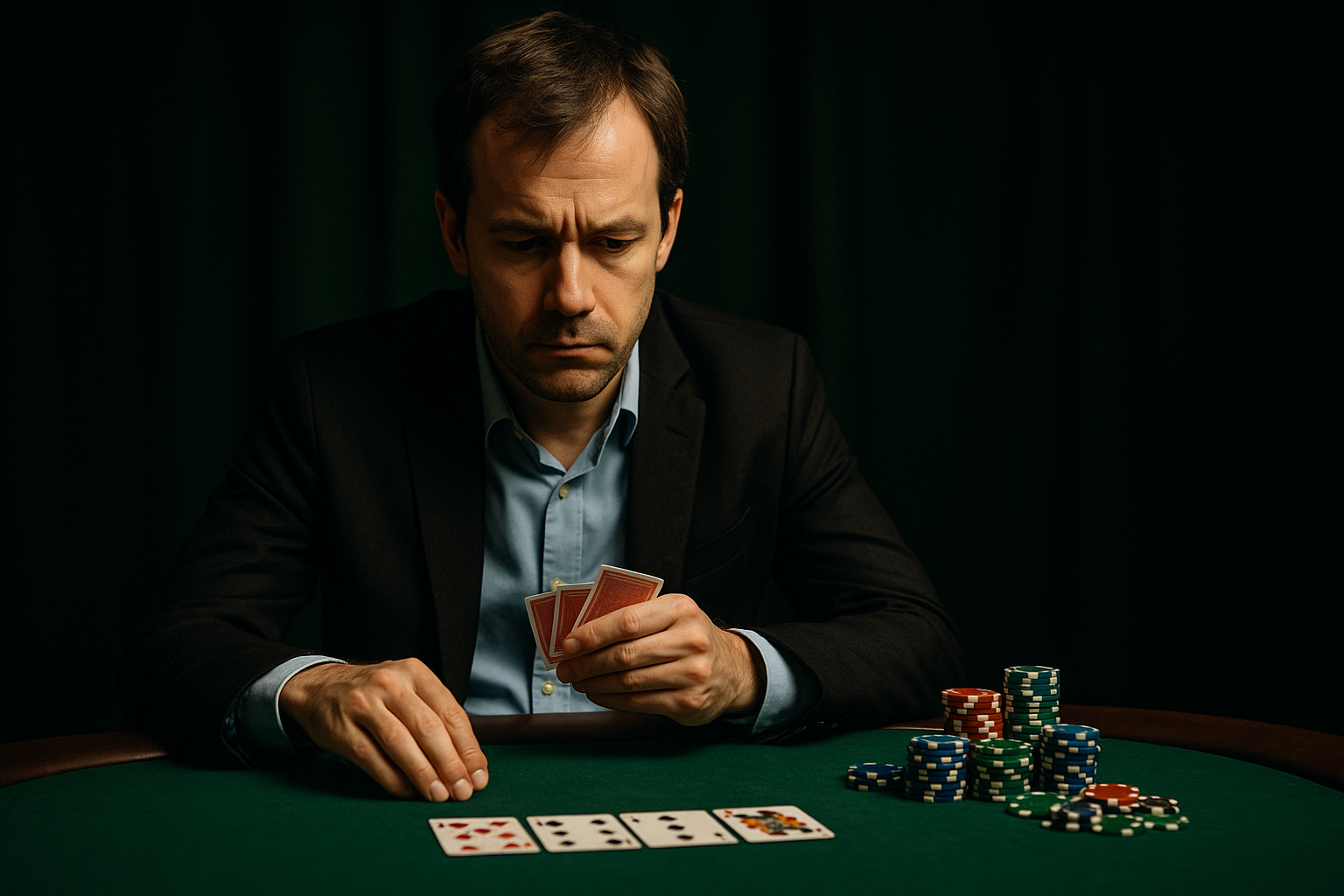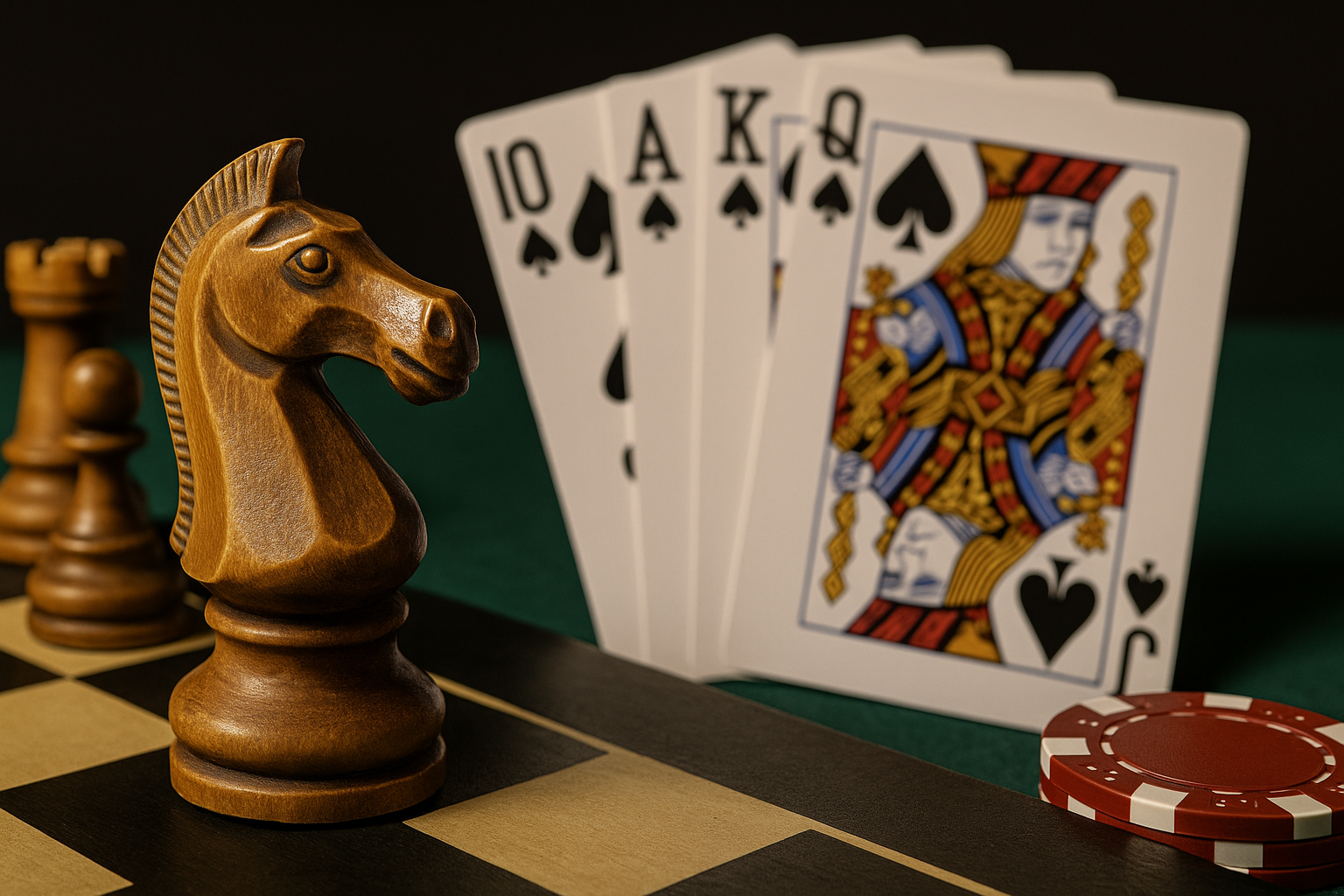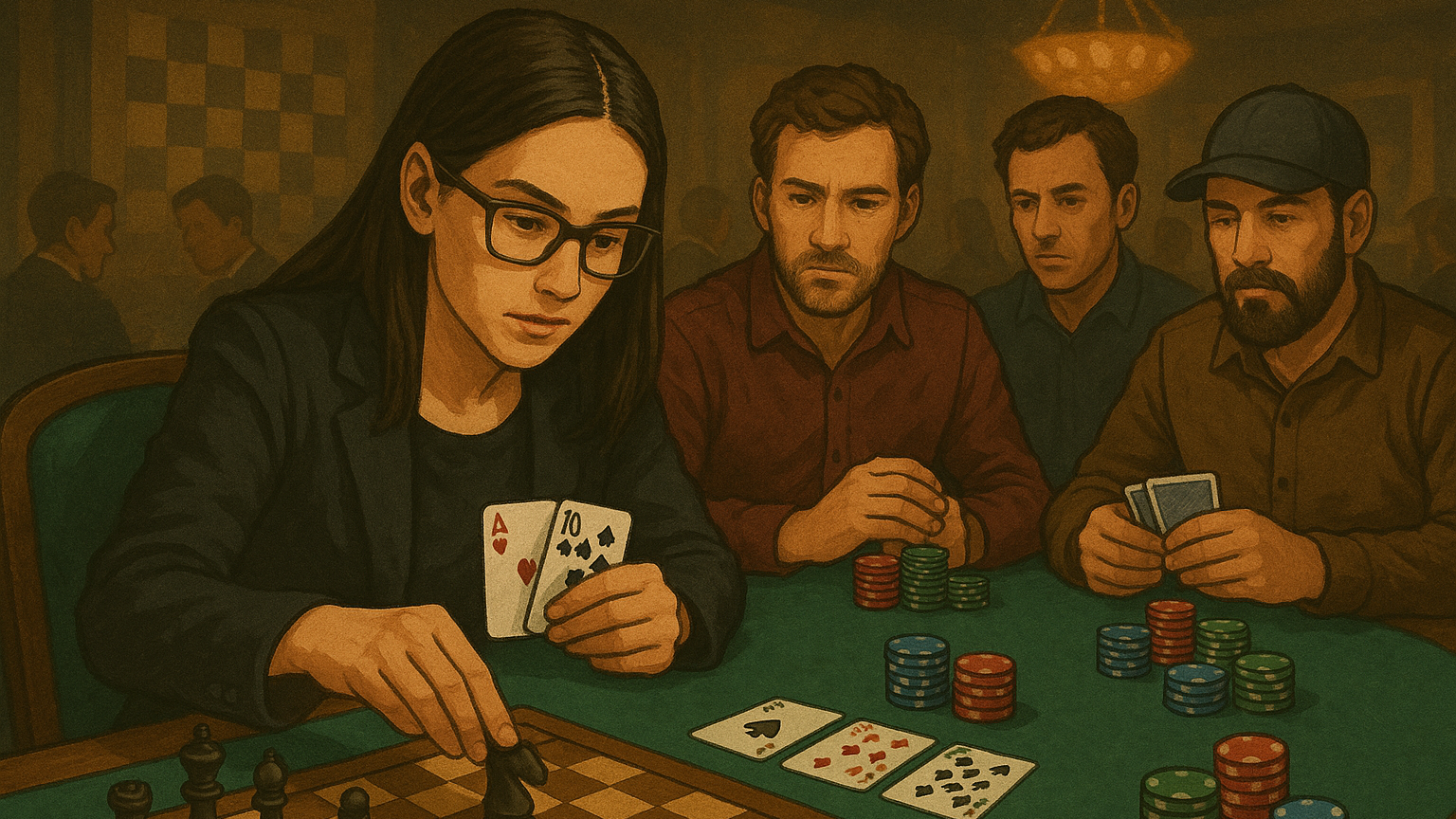Poker has evolved dramatically over the last decades, moving from a game of chance and 'card sense' to one where discipline, analysis, data models, and well-thought-out decisions reign supreme. Chess, as the purest form of intellectual battle, played a bigger role in this transformation than one might assume. In this article, we delve into how chess principles have permeated poker strategies and how poker becomes a mental arena for modern 'mind warriors.'
From a World of Certainties to the Unknown: Chess Players' Challenges in Poker
The transition from chess to poker isn't always smooth. While the games share many mental tools, their essence differs in key aspects. The biggest shock for many chess players is dealing with incomplete information. On a chessboard, everything is visible, and each move is logically derived, whereas poker often requires decisions based on estimates, probabilities, and assumptions. This demands a completely new way of thinking, the ability to work with uncertainty, and simultaneously manage risk effectively.
Another challenge is behavior at the table itself. In chess, a player almost never misleads; every move has a purpose, and bluffing simply doesn’t exist. In poker, however, bluffing is a key part of the strategy. Learning to create false narratives and simultaneously recognize them in opponents is an art chess players must gradually master. This is closely related to the need to read people, observe body language, game tempo, and micro-reactions.

Finally, there's emotional balance. While chess can have errors and frustration, the course of play is often more stable. Poker is much more volatile; lost hands, bad beats, and swings of fortune require strong psychological resilience. The ability to stay centered and disciplined even after a series of setbacks is one of the toughest yet most crucial lessons chess players learn in poker.
Cards on the Table: How Poker Enriches Chess Players
Even though it might seem that chess players come into the poker world with a clear advantage, it's often poker that mentally takes them further. The game with incomplete information teaches chess players something often missing in their original domain: the ability to make decisions under pressure without a full picture. In poker, you never know everything, and this unpredictability helps chess players shed the need for 'perfection.' Suddenly, correctly assessing the situation becomes more important than finding an absolute solution. This can even improve their flexibility during a chess game, especially in fast or unclear positions.
Additionally, poker offers chess players a new type of challenge and with it, new motivation. After years of playing chess, where variations and openings are often repetitive to the point of exhaustion, poker can be a welcome refreshment. Constantly changing situations, diverse opponents, and the psychological game at the table provide space for new mental battles. For many chess players, poker doesn’t just serve as an escape but as a way to reignite their passion for the game —now with cards instead of pieces.
The biggest difference between chess and poker remains the factor of luck. Chess is a game of perfect information – both players see the entire board, there are no cards or hidden factors, so the outcome depends solely on skill, preparation, and decisions. In poker, the situation is the opposite: players operate with incomplete information, cards are hidden, and variance caused by random deals has a significant impact on short-term results. While over the long term, quality and strategy prevail, in individual games or tournaments, luck can play a decisive role—making poker dynamic, unpredictable, and attractive for many players.

A New Game, New Opportunities
The trend is clear; increasingly more chess players are trying their luck at the poker table. It’s not just a passing fad but a natural development. When logical thinking, strategic discipline, and the desire for competition meet, poker offers the perfect playing ground. This trend has the potential to grow into something even bigger. Joint tournaments, leagues, or community events where the brightest minds from both worlds meet are no longer science fiction but a real future.
For many chess players, poker represents not just an alternative but another phase of their game evolution, a new way to test their intellect, push comfort boundaries, and learn to manage uncertainty with poise. For those seeking a new challenge beyond the black-and-white chessboard, poker might just be the right next move. And who knows, maybe one day poker tables will be filled not only with chips but also with Grandmaster titles.
Check out the first part of this article:




